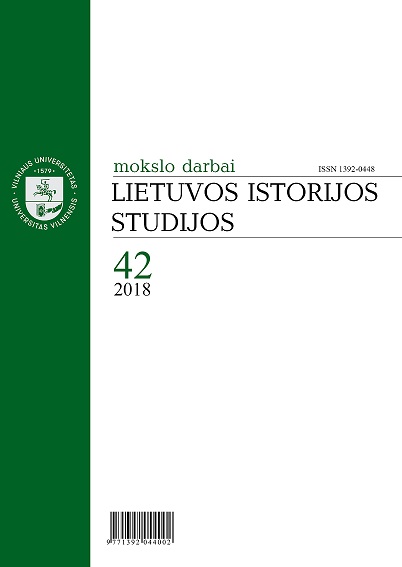Sugrįžtant prie organiškosios valstybės: apie katalikiškos sociologijos įtaką katalikiškajam korporatyvizmui
Coming Back to an Organic State: On the Influence of Catholic Sociology on Catholic Corporatism
Author(s): Vilius KubekasSubject(s): Christian Theology and Religion, Economy, Economic history, History and theory of sociology, Social Theory, Interwar Period (1920 - 1939), Sociology of Religion
Published by: Vilniaus Universiteto Leidykla
Keywords: Catholic social theory; corporatism; organic state; Pranas Dielininkaitis; Catholic sociology; history of sociology; social question;
Summary/Abstract: This article examines the uses of Catholic corporatist theory among Catholic social theorists in Lithuania during the interwar period, with particular focus on the social theory of Pranas Dielininkaitis (1902–1942). Dielininkaitis, who received his doctoral degree in sociology at Paris University in 1933, acted as a transmitter of Catholic social theory in Lithuania. In 1934, he participated in the summer school on Catholic state theory in Switzerland. Later on, Dielininkaitis drew on his Swiss influences and used the existing framework of Catholic sociology to develop and promote his own concept of corporatism. Like many other Catholic social theorists, Dielininkaitis saw corporatism as a “third way” between capitalist and socialist economic systems. Interestingly, Dielininkaitis limited Catholic corporatism to social and economic spheres and separated it from political implications. However, in his considerations on the political crisis in France, Dielininkaitis maintained that the political form is an expression of social life. Therefore, his separation of corporatism from the political sphere still remained problematic on a theoretical level; the perceived connection between political order and social life implied that Dielininkaitis’s concept of social and economic corporatism was open to a redefinition into a political project.
Journal: Lietuvos istorijos studijos
- Issue Year: 2018
- Issue No: 42
- Page Range: 66-77
- Page Count: 12
- Language: Lithuanian

